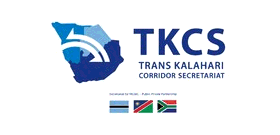 Trans-Kalahari Railway: Igniting Southern Africa's Tourism Boom
Trans-Kalahari Railway: Igniting Southern Africa's Tourism Boom
After years of anticipation, the Trans-Kalahari Railway (TKR) project is gaining momentum, promising to reshape the tourism landscape of Southern Africa. This ambitious initiative aims to connect Botswana and Namibia by rail, unlocking significant opportunities for travel agents across the continent.
Recent meetings between Botswana's Minister of Transport and Infrastructure, Noah Salakae, and Namibia's Minister of Works and Transport, Veikko Nekundi, have signaled a renewed commitment to the project. While acknowledging past delays, both ministers stressed the importance of expediting the TKR’s development to capitalize on the growing tourism potential of the region. A key focus is integrating the railway into the broader Trans-Kalahari Development Corridor, encompassing infrastructure enhancements like water, power, and communication networks, alongside new towns and industrial clusters.
For travel professionals, the TKR presents a game-changing opportunity. The railway is poised to significantly reduce travel time between key destinations, making combined Namibia-Botswana itineraries more appealing to international tourists. Imagine seamless journeys between iconic destinations like the Namib Desert, Windhoek, the Okavango Delta, and the Kalahari Desert. This enhanced connectivity will empower travel agents to curate unique and diverse travel packages, catering to a wider range of interests and budgets.
The economic benefits for the tourism sector are projected to be substantial. Current combined tourism revenue for both countries stands at approximately US\$1 billion. With the TKR in operation, this figure is expected to see significant growth, driven by increased visitor numbers and extended stays. Projections indicate a potential surge in tourism revenue, with added value from time savings and increased tourist spending. This translates into more business for hotels, lodges, tour operators, and other tourism-related businesses, creating a ripple effect of economic growth throughout the region.
The TKR's impact extends beyond tourism, facilitating trade and boosting economic development across Sub-Saharan Africa. The railway will streamline the movement of goods and commodities, particularly coal exports from Botswana via the port of Walvis Bay. This improved trade infrastructure aligns perfectly with the African Continental Free Trade Area (AfCFTA) objectives, fostering economic integration and growth across the continent.
To ensure the project stays on track, a feasibility study is currently underway, conducted by CPCS Transcom UK Limited in partnership with local experts. This study will provide a roadmap for implementation, addressing key considerations such as financing, environmental impact, and community engagement. The findings will be reviewed in August, marking a crucial step towards bringing this transformative project to fruition.
The Trans-Kalahari Railway represents more than just a transportation link; it's a catalyst for regional development and a gateway to unlocking Southern Africa's vast tourism potential. Travel agents should prepare to leverage this exciting development, crafting innovative itineraries and capitalizing on the anticipated tourism boom. The future of travel in Southern Africa is on track, and it's time for the travel trade to get on board.
